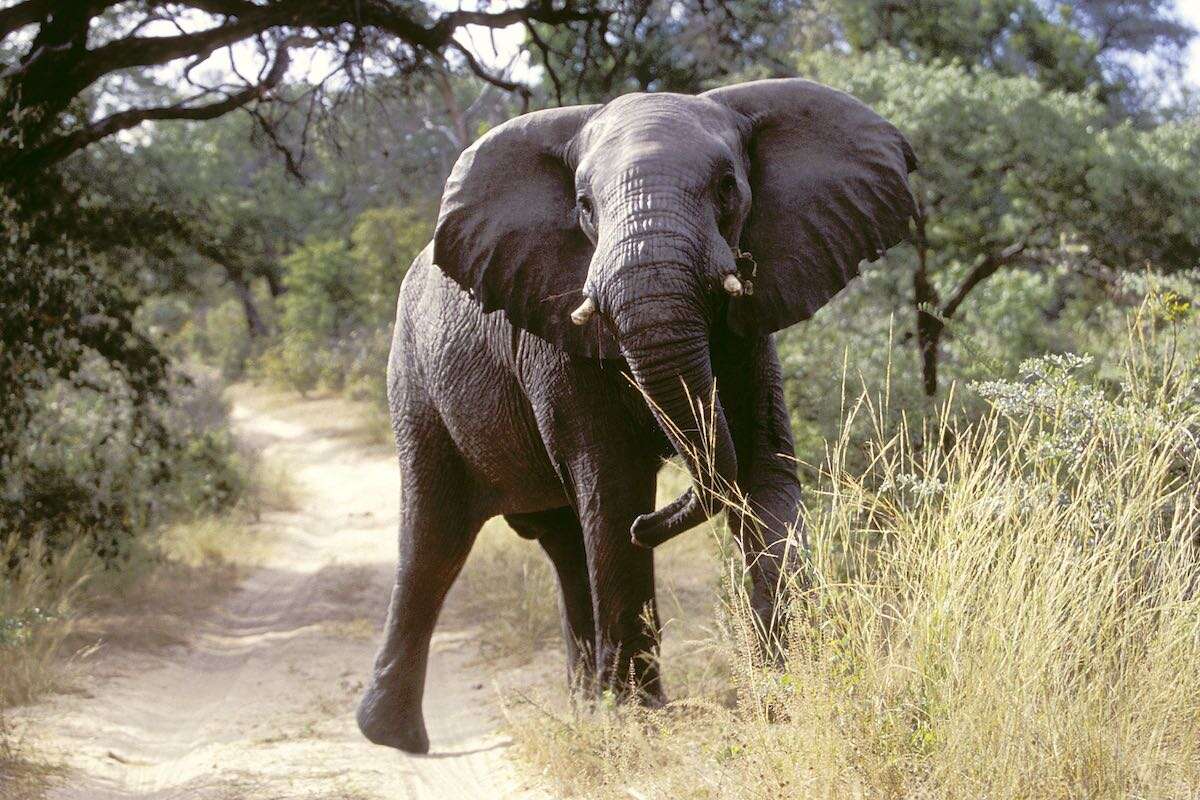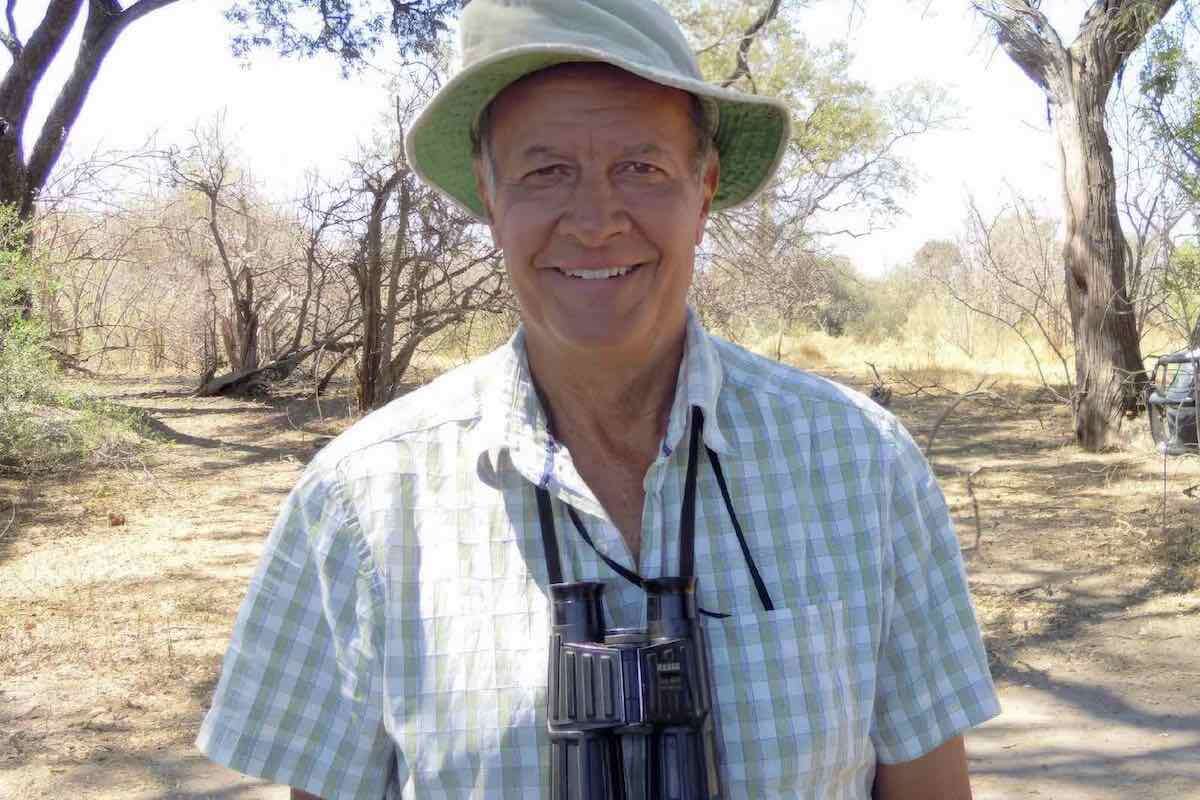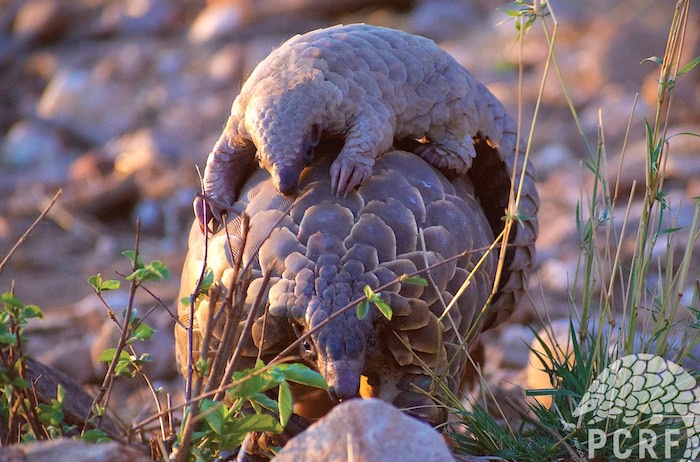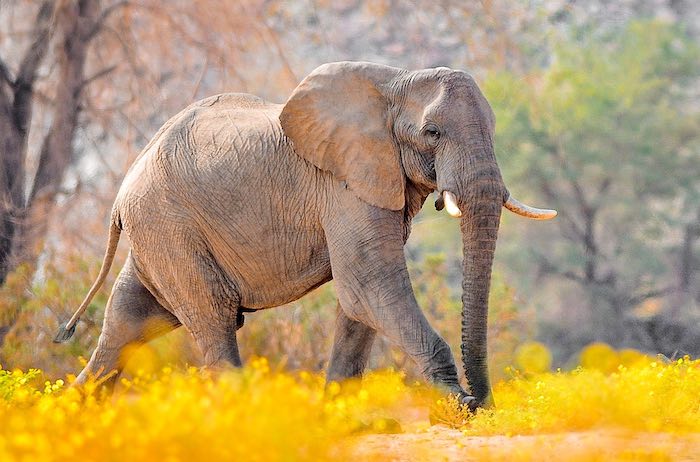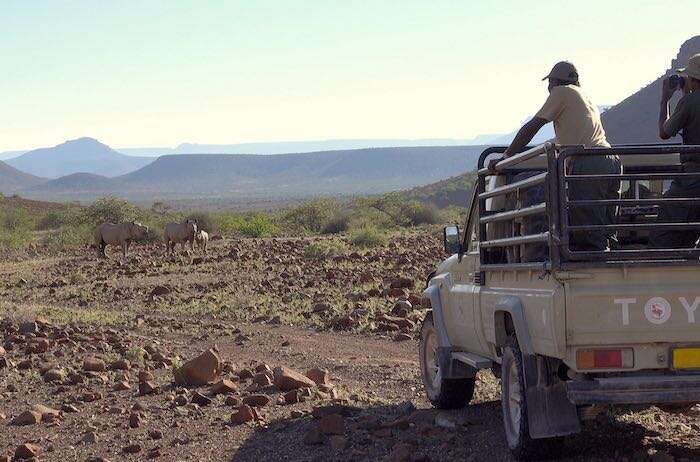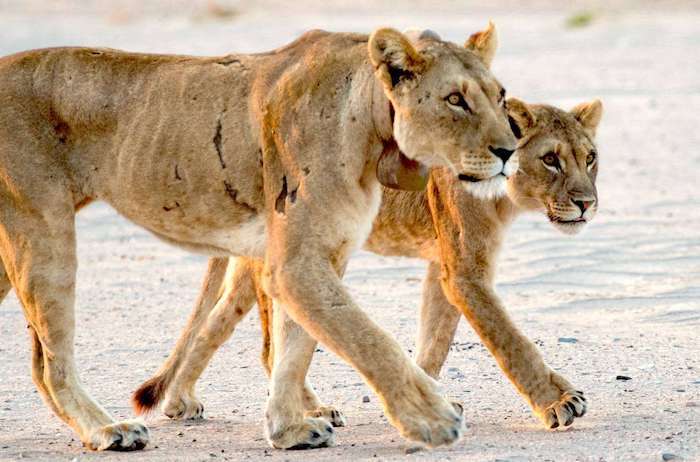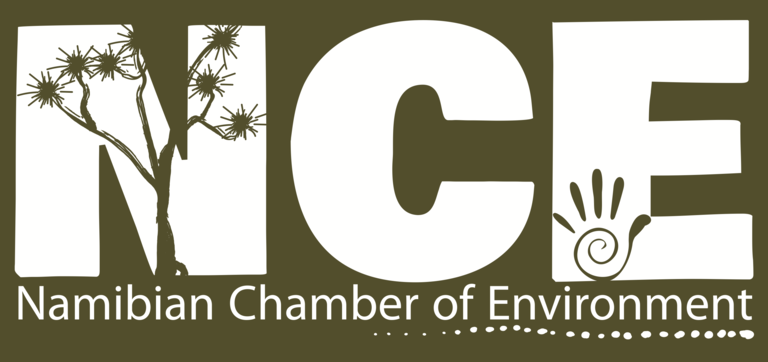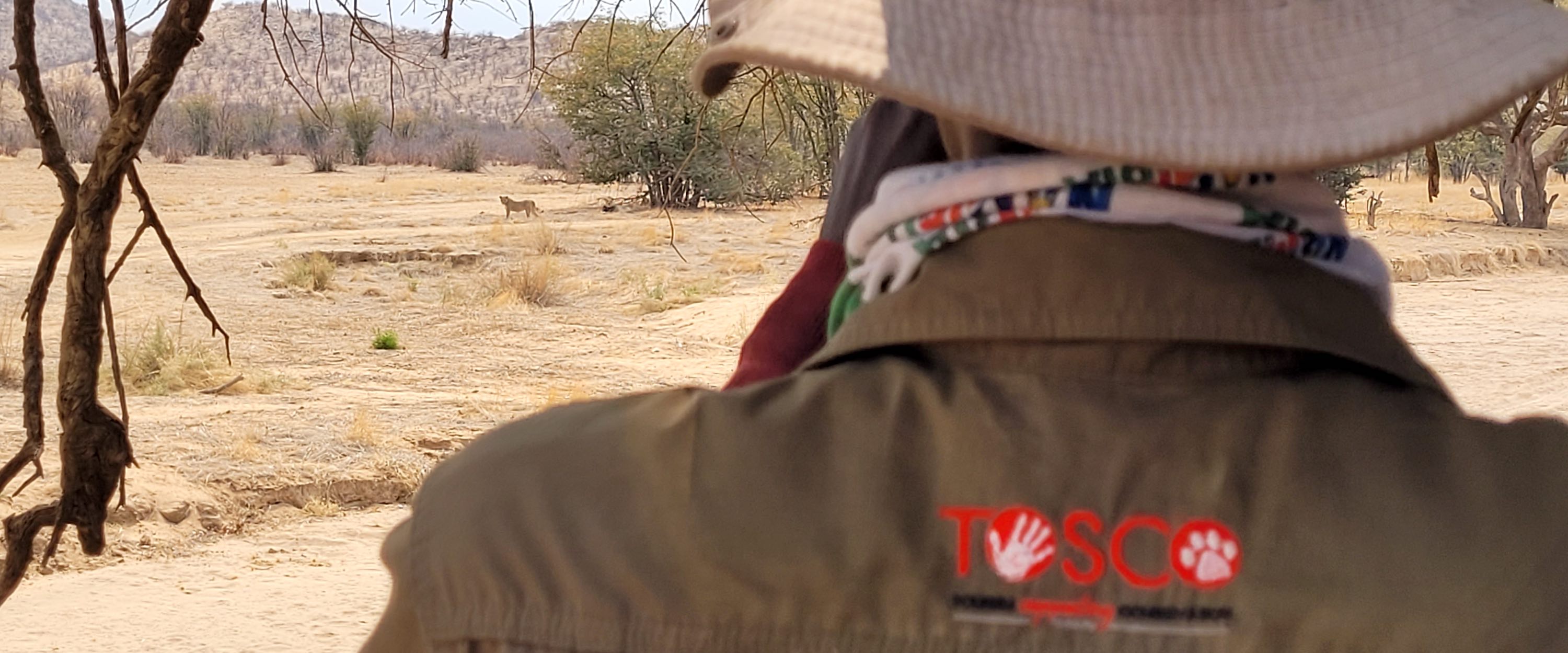
SMART Rangers for the conservation of desert-adapted lions
1st November 2023
1st November 2023
Namibia's famous desert-adapted lions in the northwestern part of the country largely owe their survival to a dedicated team of Lion Rangers. These rangers patrol the vast Kunene Region on foot, equipped with little more than smartphones to record their progress and environmental observations.
The Lion Rangers programme was founded in 2018 as part of the Human-Lion Conflict Management Plan for North West Namibia introduced by Namibia's Ministry of Environment, Forestry and Tourism (MEFT) in response to escalating human-lion conflict in this region. The programme is based on community conservation approaches developed by the Lion Guardians programme in East Africa, and by Namibia's Save the Rhino Trust. It brings together conservancies, government and non-governmental organisations around the shared mission to protect farmers' livelihoods and their families' wellbeing by limiting human-lion conflict whilst conducting lion research and monitoring. The programme has expanded to eleven conservancies: Anabeb, Doro !Nawas, Ehi-Rovipuka, ≠Khoadi-//Hôas, Omatendeka, Orupupa, Puros, Sesfontein, Sorris Sorris, Torra, and Tsiseb. It employs 47 lion rangers and four Rapid Response Teams across the Kunene and Erongo regions in northwestern Namibia.
Lion Rangers are community members (and often also livestock farmers) who are selected by their conservancies to receive specialised training and support in order to carry out their duties in limiting conflict between humans and lions. One of the main tools the rangers are equipped with are smartphones with an application known as SMART (Spatial Monitoring and reporting Tool) Mobile, which is part of a set of software and analysis tools developed to help rangers around the world to collect data during monitoring patrols. All Lion Rangers and members of the Rapid Response Teams have been trained to use the app in an efficient and reliable manner to ensure rapid and accurate data collection and transfer.
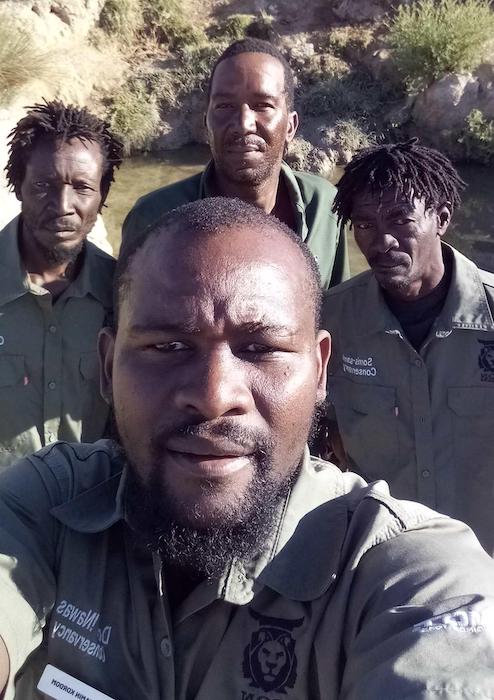
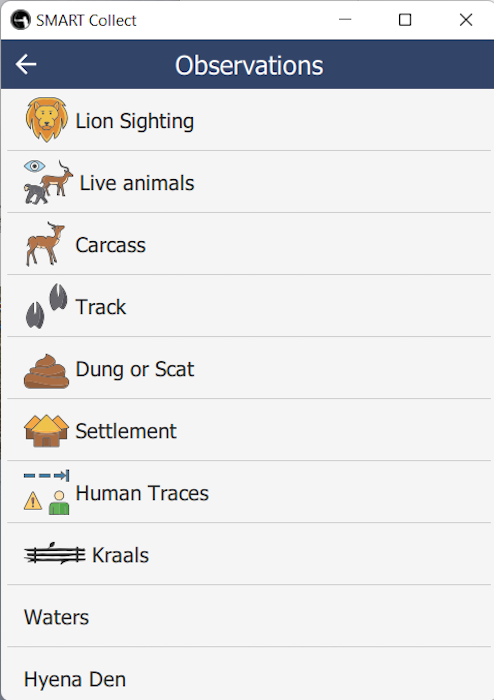
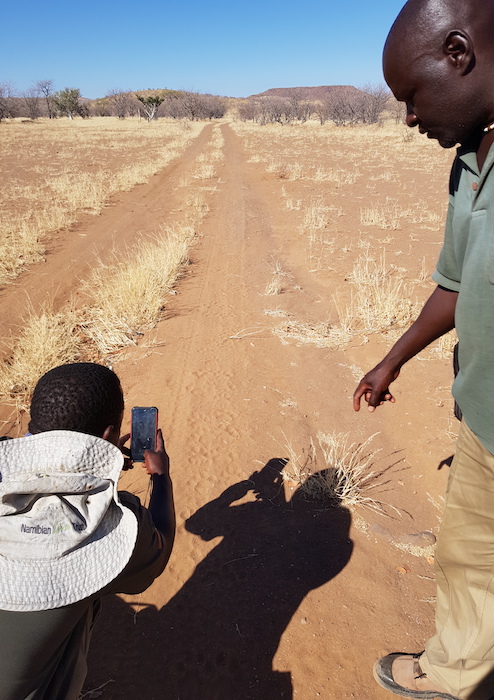
Among the data collected are lion and other carnivore sightings, prey species sightings, tracks, scats and dung, water hole status and locations, and the position of homesteads and livestock. Rangers also enter information gathered during community meetings that they hold to inform farmers and their communities on the presence and movement of lions in their areas. The rangers export all patrol data via Google cloud to a centralised server. The data are analysed by the Lion Rangers Programme Administrator, who creates reports to share with the partner conservancies. Conservancy managers can thus identify potential conflict hotspots and take proactive steps to mitigate conflict. SMART reports are also sent to MEFT to contribute to the overall management of northwestern Namibia's lion populations.
In the 18 months since the SMART system was implemented in April 2022, the Lion Rangers have recorded 12,002 patrols across the northwest – 8,889 of which were on foot, with an average foot patrol of 9.2 km covered in 3.3 hours. The rangers spent a combined total of 50,065 hours patrolling 279,854 km, of which 87,678 km were covered on foot. They recorded 445 lion sightings and 876 lion tracks during this period. The SMART system was also used during the first-ever Northwest Lion Population Survey, which was conducted from 6 November 2022 to 6 January 2023.
The data collected through SMART is also used to reward communities for living with lions. The Wildlife Credits scheme is applied to all 11 conservancies where lions are known to occur. Wildlife Credits pays conservancies for proactive, verifiable conservation results in conserving particular species or their habitat. The SMART system produces the data needed to show whether lions are present in an area, which triggers direct payments to the relevant conservancies. Paying for results through Wildlife Credits complements existing funding streams, while recognising conservancies for their contribution to conservation.
At the end of each year, a Lion Ranger award ceremony is held to acknowledge and celebrate the achievements of the top performers. The three rangers topping the list this year have already logged 956 foot-patrols, covering 13,299 km in 11 months. Rinoveni Tjauira, from Omatendeka conservancy, is patrolling up to 800 km on foot per month! The top three at the end of the year are each rewarded with a ram and goats.
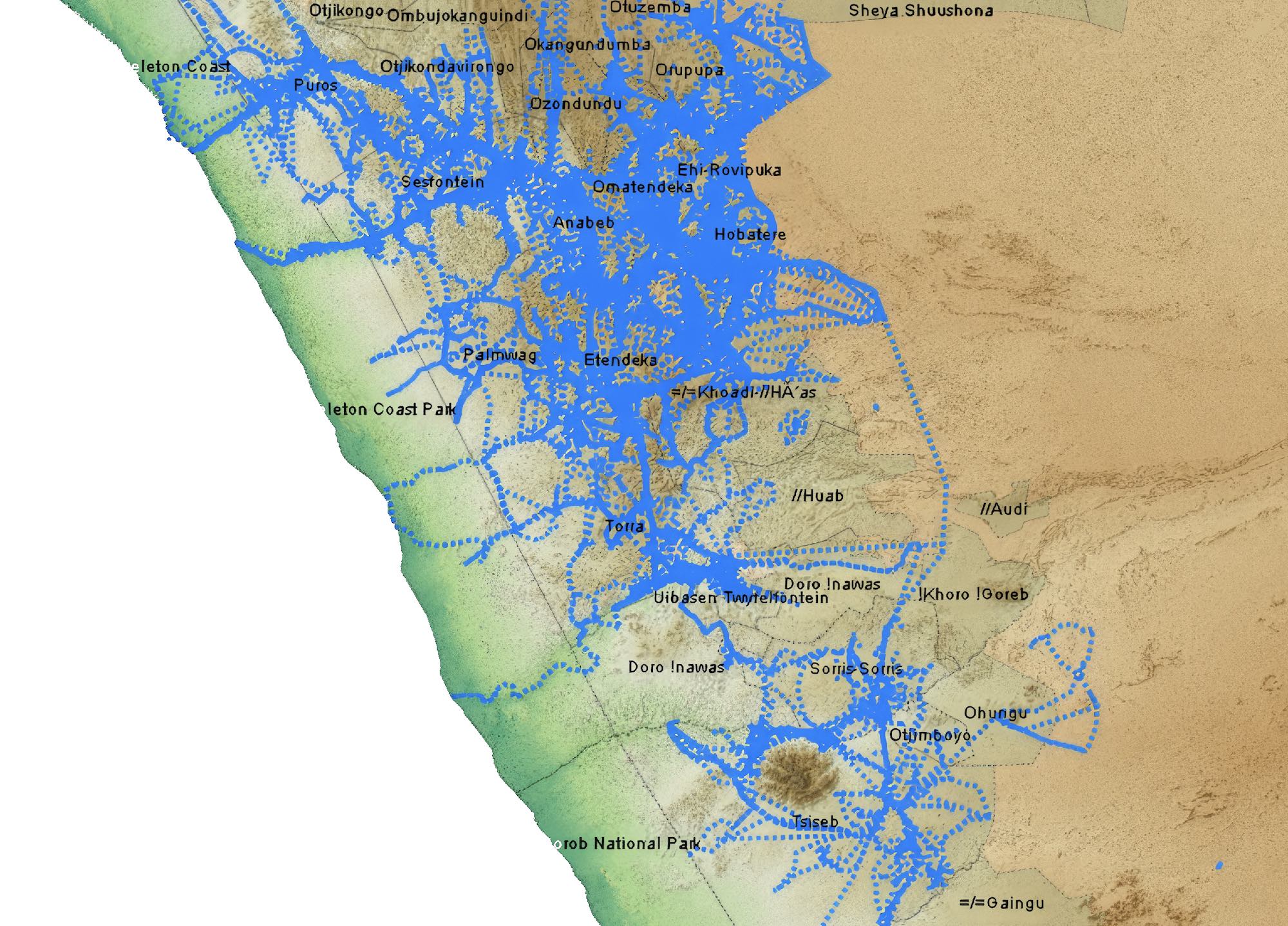
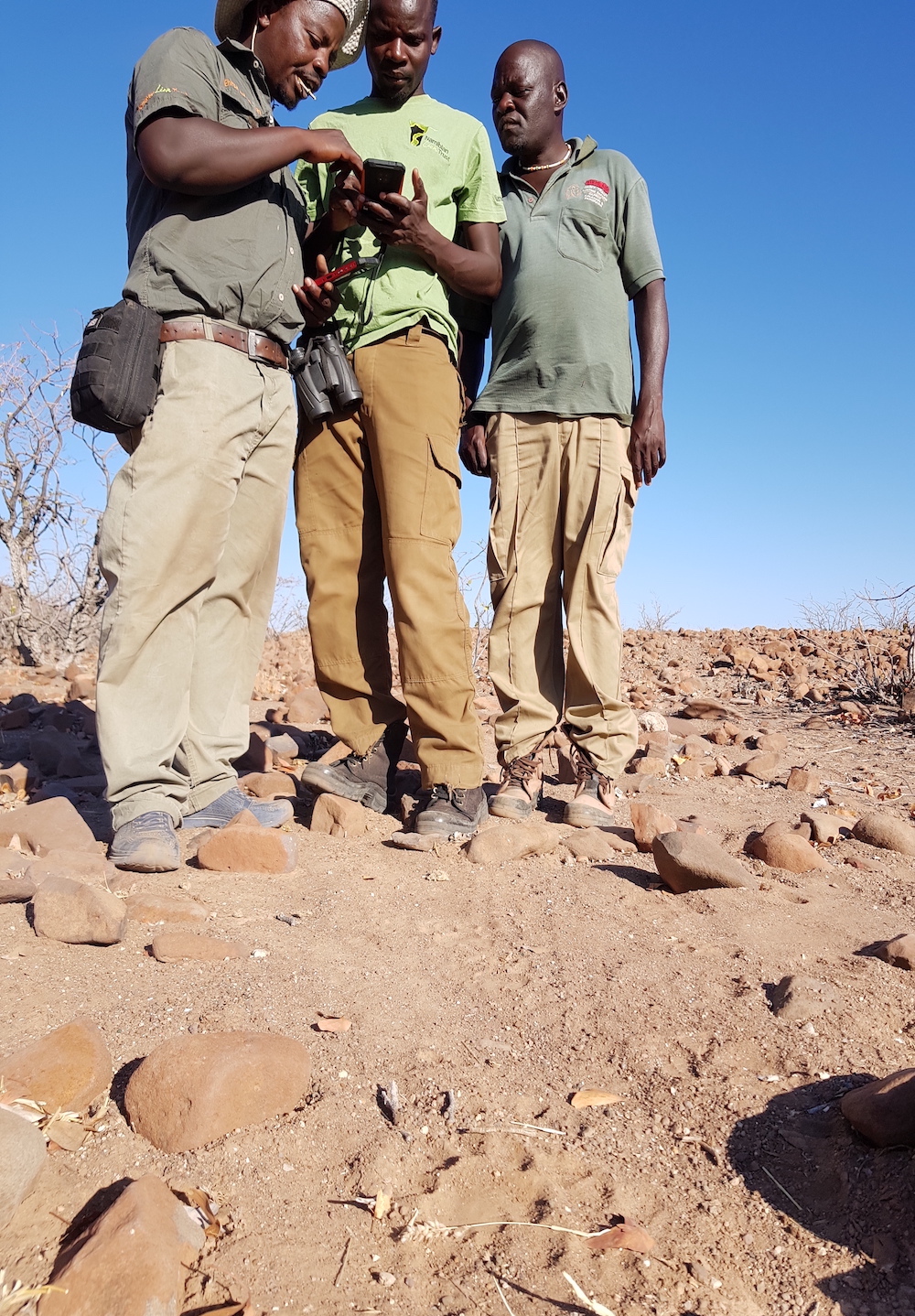
Because the majority of Lion Rangers are farmers themselves, they have first-hand experience of the challenges facing Kunene farmers who live alongside lions and other large carnivores. This enables rangers to better relate, connect and communicate with the farmers they assist in managing human-lion conflict. Since the deployment of SMART, Lion Rangers have responded to 113 human-wildlife conflict incidents, including 57 lion-related incidents, in which 342 livestock (primarily goats) were killed. While collecting this information in itself does not resolve conflict, it provides important insights for conservancy managers, government and other support organisations to consider when developing ways to address this challenge.
SMART has proven to be an important tool to monitor Kunene's lions in particular and its wildlife in general, but data collection requires a high level of effort and care from the Lion Rangers to cover their local landscape and adhere to good data management practices. Those receiving the data and reports produced from this hard work must ensure that they form part of an adaptive management loop, where information informs action. Through the Lion Rangers programme, communities are partnering with the government to transform citizen science into conservation, thereby supporting the survival of Namibia's desert-adapted lions and rural livelihoods.
For articles on similar topics, please click one of the following options:
For more great articles from Conservation Namibia see below...
Conservation Namibia brought to you by:
We use cookies to monitor site usage and to help improve it. See our Privacy Policy for details. By continuing to use the site, you acknowledge acceptance of our policy.
